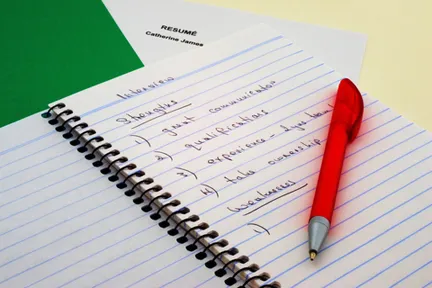
The question which often stirs the most dread in interviewees: “What is your greatest weakness?” Interviewers may also ask it in other ways like: “Tell me about some of your areas for professional development and growth.” or “What are three weaknesses you have in relation to this job description?” or “If I were to speak to your previous supervisor, what would they say you needed to work on?”
No matter how it is phrased, you need to be prepared with a response. Many times this question is asked simply to evaluate your preparedness for the interview itself. Like everything else, there is often not one “right” or “wrong” way to answer this question, but here are some things to keep in mind.
Turning a negative into a positive can backfire. This is the way you are supposed to answer this question, right? Say something negative that is actually a positive. We hear these answers all the time. Some examples include:
- I tend to be a perfectionist.
- Sometimes I work too hard and push myself too much.
- I have extremely high standards for myself and others.
Sorry if you are reading this and genuinely identifying with these statements because you’ll have to come up with other weaknesses to share. Statements like these often come off as contrived and disingenuous.
Turning a negative into a positive can work – if done correctly! This tactic can work if you focus on a specific skill that you are trying to improve. Important note: make sure the skill is not a critical one for the job at hand. A good formula to follow would be, “I realized my presentation skills needed some work and since it is not a major part of my current job, I sought other opportunities like joining Toastmasters and asking my supervisor for more feedback on my presentations.”
Being genuine doesn’t mean you have to be too honest. Authenticity is the key to a good interview. You’ll want to be yourself and see if you are a genuinely a good fit for the position. It goes without saying that you should be honest at every step of the application process - interview included, but that doesn’t mean you shouldn’t be strategic. It is sometimes shocking what an interviewee will reveal if they are feeling stressed and unprepared for the question. Individuals will offer up deal breakers like being “quick tempered” or “always late to everything.” You might laugh but these are real examples and they will raise real red flags.
Don’t shut down during the answer. Some individuals will take way too long to answer the question and then finally assert that they can’t think of a single weakness. Well, we just discovered a couple for you – a lack of self-awareness and a lack of preparation for this interview! Take some time and prepare for the question as best as you can. Doing an honest self-assessment about what you would feel comfortable revealing will help you on interview day. If you need help practicing, come into OITE for a mock interview.




